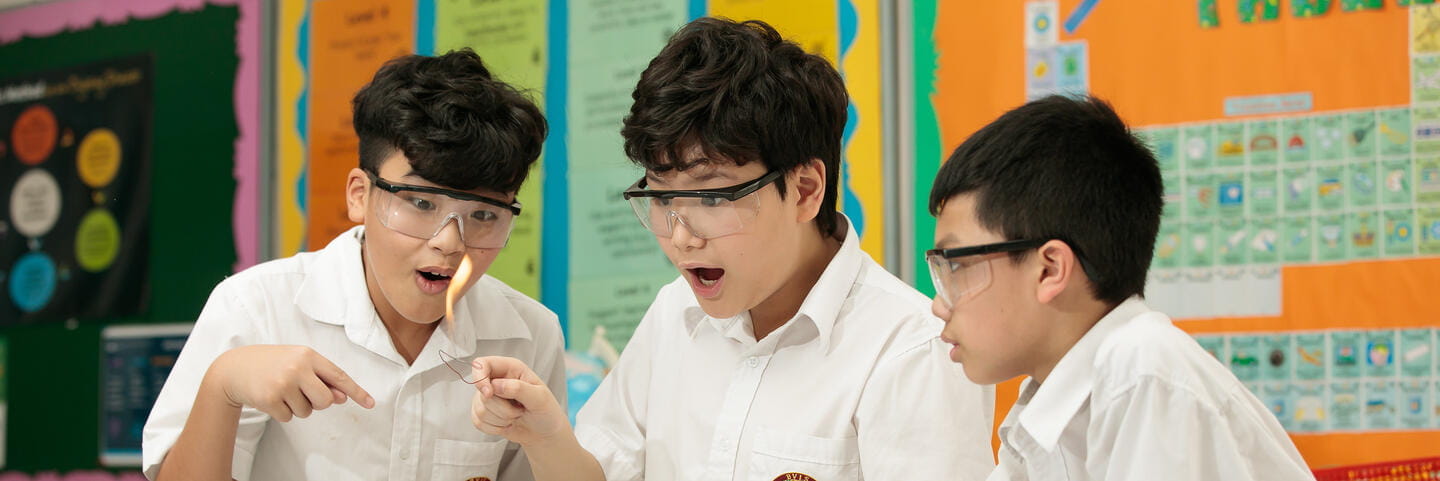Our Code of Conduct
Our aim is to be a community within which every student is safe, happy, valued and able to grow and learn. This code of conduct sets out some basic expectations that, when followed, can help all students to flourish. We believe that our goals are best achieved when students, parents and all adults in the school have a clear and consistent understanding of expectations. They recognise their responsibility to work together to develop equitable approaches to meeting those expectations. In our multicultural, international community, it is important to understand that values and expectations may differ and so we need to be respectful. Whilst we acknowledge the rich diversity of languages in school, our language of communication and instruction is English.
We recognise that students may sometimes not meet our expectations. Our focus is always to help students remain on track while addressing the needs of those who may be adversely affected by poor behaviour. Restorative approaches and supportive monitoring plans are part of our repertoire of strategies. Where a student repeatedly falls short of expectations, tensions may arise between the needs of the individual and the needs of the wider school community. In these circumstances, there may be consequences for a student that serve to signal the seriousness of the matter and protect the well-being of the community.
Good behaviour is recognised, praised and rewarded, and our Code of Conduct serves as a guide to what we value as a school community.
Our Code of Conduct applies:
-
To students while in school, travelling to and from school or at other times when in uniform or school kit;
-
To students on trips, exchanges or when representing the school;
-
To behaviour outside school if there is a clear link between that behaviour and maintaining good behaviour and discipline among the school community as a whole.
Our expectations
Respect yourself
Students are expected to:
-
Show commitment in all endeavours;
-
Wear the full correct uniform or adhere to the dress code with pride;
-
Bring correct equipment to lessons;
-
Hand in homework on time.
Respect our community
Students are expected to:
-
Conduct themselves in a safe, sensible manner, showing regard for others
-
Behave in a reasonable and polite manner to all members of our community
-
Show respect for the opinions and beliefs of others
-
Be respectful of cultural differences
-
refrain from inappropriate public displays of affection
-
Arrive on time to lessons
-
Follow instructions given by the teacher.
Respect our environment
Students are expected to:
-
Show respect for the working environment;
-
Eat only in designated areas;
-
Keep our school free from chewing gum;
-
Keep our school free from alcohol, drugs and cigarettes.
The role of parents
Parents, guardians and carers are central to our success in developing a community in which all students can flourish. We expect parents to work with us in modelling and reinforcing exemplary behaviour, demonstrating respect for members of the community, our environment and this Code of Conduct.
Parents should support our approaches, our strategies and our sanctions and cooperate with us in restoring self- esteem, respect and communication when expectations are not met by their children. They should, in particular, support their children by ensuring that they arrive at school neatly dressed in full school uniform and that homework and other tasks are completed on time.
Procedures for dealing with unacceptable behaviour
It is the responsibility of staff to deal with minor incidents at the time they occur. The form tutor or class teacher should always be informed. It is the responsibility of the form tutor or class teacher to monitor students’ behaviour generally.
More serious incidents can be dealt with by the teacher and the form tutor in consultation with middle leadership.
It is the responsibility of the Assistant Heads and the Deputy Head to monitor student behaviour across the school. The Assistant Heads/Deputy Head will become involved if a student’s behaviour is a cause for concern beyond minor isolated incidents. More serious incidents and actions should be logged by the Assistant Heads/Deputy Head.
Consequences
Outlined below are examples of unacceptable behaviour and their consequences. This list is not exhaustive but serves as a guide.
| Level | Incident | Possible Consequences | Recording and communication |
|---|---|---|---|
| 1 |
These incidents are dealt with by the teacher and include:
|
|
|
| Level | Incident | Possible Consequences | Recording and communication |
| 2 |
|
|
|
| Level | Incident | Possible Consequences | Recording and communication |
| 3 |
|
|
|

